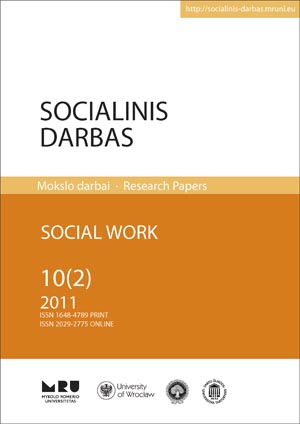Kritinio mąstymo ugdymo galimybės teisinio ugdymo pamokose
Potential for the Development of Pupils’ Critical Thinking in Legal Education Lessons
Author(s): Romas Prakapas, Vitalija ČepaitėSubject(s): Social Sciences
Published by: Mykolas Romeris University
Keywords: legal education; secondary school; lesson; critical thinking
Summary/Abstract: The article presents an empiric qualitative research into the potential for the development of pupils’ critical thinking in legal education lessons. The research was carried out in four educational institutions in Ukmergė. Six secondary school teachers who teach Basics of Law or integrate specific legal education topics into their lessons of other subjects were surveyed in semi-structured interviews. Based on document analysis, the article points out that the documents which regulate legal education in Lithuania emphasise the importance of legal education in the modernday change process of education and provide an obligation to create an educational environment which would prepare pupils to live in a democratic society and encourage young people to take an active part in political activity, an environment in which all pupils would be perceived as aware and active members of the nation and the civic society who have fundamental knowledge of practical life. It also states that legal education lessons create a favourable niche for pupils to discuss, question, challenge and think critically about problems engaging themselves in a learning process in a safe and comfortable work environment which encourages pupils’ initiatives and search of meaning. In summary of the empiric research findings, the article proposes that the following measures are essential in the process of critical thinking development: a) expansion of the range of legal education teaching materials taking into account the change of learning paradigms; b) arranging targeted professional development and training courses for teachers of legal education taking into consideration the specificity of legal knowledge and moulding it into didactically attractive learning materials; c) initiating pedagogical reflections and dissemination of experience among teachers who teach Basics of Law or integrate specific topics of legal education into other subjects.
Journal: Socialinis darbas
- Issue Year: 10/2011
- Issue No: 2
- Page Range: 181-192
- Page Count: 12
- Language: Lithuanian

